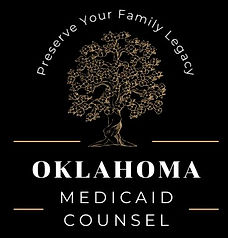
The Basics of Medicaid
Understanding Medicaid’s rules can be overwhelming—but you don’t have to do it alone. Our team helps families navigate the process, preserve what they’ve worked for, and ensure loved ones receive quality care.
Contact us today to learn how we can help with your long-term care planning.
🏛️ A Brief History of Medicaid
Medicaid was created in 1965 as part of the Social Security Amendments signed into law by President Lyndon B. Johnson. It is codified in the Social Security Act.
While Medicare was created to cover health care for seniors, Medicaid was designed with a different purpose: to assist low-income individuals and families with unmanageable medical costs. Long term care is one of the most extreme cases of unmanageable medical costs for most families.
-
Medicaid is a federal-state partnership, meaning it’s funded jointly by the federal government and individual states.
-
States administer their own Medicaid programs under federal guidelines, which means eligibility requirements and coverage details vary by state.
In Oklahoma, Medicaid is administered through a program called SoonerCare, managed by the Oklahoma Health Care Authority (OHCA) and Oklahoma Human Services (OKDHS).
Medicaid is the largest source of funding for long-term care, covering services that Medicare does not, including nursing home care and home-based services, that most families can’t afford out-of-pocket.
🧓 Why Medicaid Is Essential for Long-Term Care in Oklahoma
Long-term care—like nursing home stays, in-home care, and assisted living—can be extremely expensive, often costing $80,000 to $100,000 per year.
Despite similar names, the two primary government programs for health care are very different. Unlike Medicare, which covers acute care and only short-term rehabilitation (20 to 100 days, depending on your supplemental plan), Medicaid is the primary source of funding for long-term care services for those who qualify.
The cost of long-term care in Oklahoma can exceed $7,000 per month for a nursing home—and health insurance policies, including Medicare, do not cover long-term care past a short rehabilitation period.
That’s why Medicaid (SoonerCare) is so critical. It helps eligible Oklahomans pay for:
-
Nursing home care
-
Home and Community-Based Services (HCBS)
-
Some assisted living services under waiver programs
-
Personal care and in-home support
🛠️ How Medicaid Works for Long-Term Care
To qualify for long-term care Medicaid in Oklahoma, applicants must meet both medical and financial eligibility rules.
🔹 Medical Requirements:
-
Must need a nursing home level of care, determined by a medical assessment or doctor’s recommendation.
🔹 Financial Requirements
-
Strict income and asset limits (which vary by state).
-
In Oklahoma, individuals must have under $2,000 in countable assets and limited income (under $2,901/month in 2025 for an individual).
-
Spousal protection rules exist to prevent impoverishing a healthy spouse, leaving them without assets and income to live on.
Financial Eligibility (2025 Guidelines)
-
Income limit: $2,901/month (for an individual)
-
Asset limit: $2,000 in countable assets
-
If you're married, spousal impoverishment protections may allow your spouse to keep up to $157,920 in assets.
If your income is over the limit, you may still qualify by using a Qualified Income Trust (QIT), also called a Miller Trust in Oklahoma.
⚠️ What About the 5-Year Look-Back Rule
When you apply, an Oklahoma Human Services Medicaid agency case worker reviews financial transactions from the past 5 years to ensure you didn’t give away assets to qualify. If you gave away money or transferred property for less than fair market value, Medicaid will impose a penalty period, delaying your benefits. Getting legal advice from an experienced Medicaid attorney is essential before making any financial moves.
🔒 Can You Still Protect Assets? Yes.
Even if care is needed soon—or has already begun—legal Medicaid planning can help. Strategies may include:
-
Creating a Medicaid Asset Protection Trust (MAPT)
-
Establishing a Miller Trust to manage excess income
-
Converting countable assets into exempt assets (e.g., home repairs, prepaid burial)
-
Planning within the rules to avoid penalties and preserve wealth
⚖️ Legal Planning Is Key
With proper planning—such as Medicaid Asset Protection Trusts, Qualified Income Trusts, or certain “spend-down” strategies—most people can:
-
Qualify for benefits immediately or much more quickly
-
Protect their home and savings
-
Access the care they need without losing everything
✅ Why It Matters
Medicaid plays a critical role in providing long-term care for:
-
Seniors with chronic illnesses or dementia
-
Adults with disabilities
-
Families facing unexpected or unmanageable care costs
Since the cost of care usually approaches $100,000 per year, even families with substantial resources or income often rely on Medicaid to help pay for care.
✅ Why This Matters for Oklahoma Families
Medicaid is not just for the poor. Many middle-class families rely on SoonerCare after exhausting their savings. Without planning, your home, savings, or retirement funds could be at risk.
Whether you're planning ahead or dealing with a sudden nursing home admission, we can help you:
-
Qualify for benefits
-
Navigate complex rules
-
Protect your home and savings
📞 Need Help Navigating Medicaid in Oklahoma?
Medicaid law is complicated—but with the right guidance, there are many opportunities to preserve assets. Don’t go it alone. We help Oklahoma families create smart, legal plans that preserve what they’ve worked for and ensure quality care for their loved ones.
Click the link below to schedule a free initial consultation.
